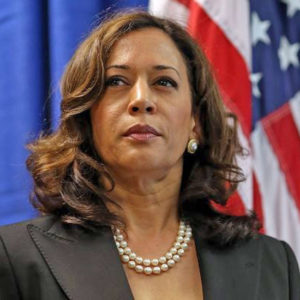Vice President Kamala Harris may not like it, and the Democrats of Durham may slap it with an asterisk, but Monday is Columbus Day in New Hampshire, in every corner of the state.
A new law took effect earlier this year with an amendment from state Sen. Lou D’Allesandro (D-Manchester) requiring every city, town, and school district to observe the same holidays as the state. That means that, as much as Portsmouth Mayor Deaglan McEachern may not like it.
In 2022, the Portsmouth City Council ended the tradition of observing both Columbus Day and Indigenous People’s Day on the second Monday in October. “Continuing to celebrate Christopher Columbus, who committed serious atrocities and massacres among the indigenous populations he encountered is unjust and cruel,” an opponent complained.
Harris isn’t a fan of Columbus Day, either. While campaigning for president in New Hampshire during the 2020 primary, she told a Portsmouth town hall audience to “count me in on support” for efforts to kill Columbus Day and replace it with Indigenous Peoples Day.
She wasn’t the only one. Massachusetts Sen. Elizabeth Warren (D-Mass) told the Concord Monitor she was backed the New Hampshire legislation, too.
“I think we ought to honor those who were here first and the extraordinary sacrifices that they were forced to make,” Warren said.
Donald Trump is trying to make it an issue in the current presidential race.
“Kamala Harris is your stereotypical leftist. Not only does she want to raise taxes and defund the police — she also wants to cancel American traditions like Columbus Day,” Trump campaign spokesperson Karoline Leavitt told NHJournal. “President Trump will make sure Christopher Columbus’ great legacy is honored and protect this holiday from radical leftists who want to erase our nation’s history like Kamala Harris.”
And as Patrick Ruffini at Echelon Insights noted on social media, “For the last 3 years, Vice President Harris has tweeted about ‘Indigenous Peoples’ Day,’ but not Columbus Day. Will that continue [Monday]?”
In New Hampshire, progressives like Harris continue to complain about Columbus Day.

The town of Durham has dutifully changed its calendar and labeled Monday “Columbus Day,” but it adds: “Also designated locally as Indigenous Peoples’ Day by Town Council Resolution #2017-28.”
In Concord, they flipped that, labeling Monday “Indigenous Peoples’ Day” and consigning Columbus to the asterisk.
Manchester never abandoned Columbus Day, but not for a lack of trying. Proposals to make Indigenous Peoples’ Day a city holiday were regularly considered during Joyce Craig’s term as mayor. Craig supported the idea, telling the Board of Aldermen in 2020, “I agree this would add a new level to (Columbus Day) and provide an opportunity to learn from history and to start a dialogue in the community that we have not had before.”
Opponents of Columbus Day often bring up the Italian explorer’s alleged atrocities, but they rarely mention the well-established historical record of slavery, ritual human sacrifice, and cannibalism practiced by the indigenous people of the Americas long before Europeans arrived.
But the real debate is whether any of this will matter on Election Day. Fewer than one in 10 Granite Staters is of Italian descent. And while in many places the Italian and Catholic communities have significant overlap, in New Hampshire there is no significant, organized Catholic vote. If there were, Harris’ anti-Catholic rhetoric might be a problem. It’s not.
Last year, Harris gave a speech on the eve of Indigenous Peoples Day saying America “must not shy away from this shameful past,” and must “shed light” on the explorers who “ushered in a wave of devastation” on indigenous peoples.





